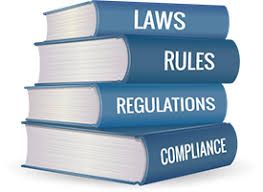
In the ever-evolving world of technology, businesses face numerous challenges in order to remain compliant with regulatory requirements. With each passing year, governments introduce new laws designed to protect consumers, ensure data privacy, and promote fair business practices. This article aims to shed light on the importance of regulatory compliance for tech companies and provide insights on how to stay on the right side of the law.
Understanding Regulatory Compliance in the Tech Industry
Regulatory compliance refers to the process of ensuring that a company’s operations adhere to relevant laws, regulations, and guidelines set forth by regulatory bodies. In the tech industry, compliance requirements extend across various domains, including data protection, cybersecurity, intellectual property rights, consumer protection, and more.
The High Stakes of Non-Compliance
Failure to comply with regulatory requirements can have severe consequences for tech companies. Apart from reputational damage, hefty fines and potential legal actions can cripple businesses, leading to financial losses and a loss of customer trust. It is, therefore, imperative for tech companies to prioritize compliance initiatives and establish robust frameworks to meet regulatory obligations.
The Key Regulatory Compliance Challenges for Tech Companies
Tech companies often face unique compliance challenges, given the rapid pace of technological advancements and the global nature of their operations. Some key challenges include:
Data Protection and Privacy
As digital transformation continues to revolutionize industries, protecting customer data and ensuring privacy has become paramount. Regulatory frameworks, such as the General Data Protection Regulation (GDPR) and the California Consumer Privacy Act (CCPA), require businesses to handle customer data responsibly and provide individuals with control over their personal information. Compliance entails implementing robust data protection measures, obtaining proper consent, and responding promptly to data breaches.
Cybersecurity
In an increasingly interconnected world, cybersecurity is a top concern. Cyber attacks can lead to data breaches, financial losses, and compromised customer trust. Companies must comply with industry-specific cybersecurity standards and regulations, as well as continuously monitor and update their security measures to mitigate risks effectively.
Intellectual Property Rights
Tech companies heavily rely on intellectual property rights to protect their innovations, software, and branding. They must navigate complex copyright, trademark, and patent laws to safeguard their intellectual assets and avoid infringement. Compliance requires conducting thorough research, registering trademarks and patents, and respecting the intellectual property rights of others.
Tips for Achieving Regulatory Compliance
Educate and Train Employees
Building a compliance culture starts with educating and training employees. Conduct regular training sessions to ensure everyone understands their responsibilities and the implications of non-compliance. Foster an environment where employees feel empowered to report potential compliance issues.
Stay Abreast of Regulatory Changes
Regulations and compliance standards constantly evolve. Stay informed about the latest regulatory developments that impact your industry. Engage with industry associations and consult legal experts to ensure timely compliance with new requirements.
Implement Robust Data Protection Measures
Data protection is a priority for regulators. Implement encryption, access controls, and regular data backups to safeguard customer data. Develop a well-defined data protection policy that outlines how customer information is collected, stored, and shared while complying with relevant regulations.
Conduct Internal Audits
Regularly assess your company’s compliance initiatives through internal audits. Identify potential gaps and address them proactively. Collaborate with internal teams to establish a compliance framework that aligns with regulatory requirements and business objectives.
Establish a Response Plan for Data Breaches
Despite robust security measures, the risk of data breaches persists. Develop a comprehensive response plan that outlines steps to be taken in the event of a breach, including breach detection, notification processes, and remedial actions. Maintaining transparency and timely response can help mitigate potential damage.
Conclusion
In today’s tech-driven world, regulatory compliance is non-negotiable. By prioritizing compliance initiatives, investing in robust frameworks, and staying updated with the ever-changing regulatory landscape, tech companies can mitigate risks, protect customer trust, and ensure long-term success. Embracing a culture of compliance is not just about following the law; it is about demonstrating ethical practices and responsible stewardship of technology in service of a better tomorrow.